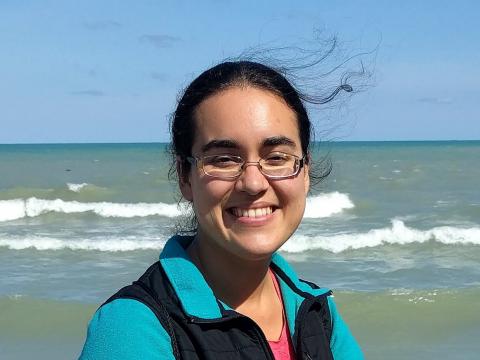Why did you choose biostatistics?
My interest in patterns and statistics led me to be a math major but I was also driven to help people, and I was involved in a lot of community service projects as an undergrad. While I valued the one-on-one connections I made with people, I thought that I could make a bigger impact if I approached problems on a broader scale. That’s when people started saying to me, “Public Health, that’s the term you need to look for.”
I attended several conferences such as Infinite Possibilities and the Society for Advancement of Chicanos/Hispanics and Native Americans in Science (SACNAS) which helped me to see biostatistics as the bridge between these two interests. At these conferences, I met many people from industry, government and academia and got see the breadth of choices available. Even as somebody who studies math, it made me realize that there are so many options out there apart from being a professor.
Why did you choose UW?
A variety of reasons. First, it’s a great program. No one is going to question the academic value of UW Biostats. Throughout the program, you’re going to work hard and learn a lot, and people in the department are going to be supportive of you along the way. And it helped that UW was on the West Coast so I could be in the same time zone as my family. It’s easy to catch flights home for the holidays.
What kind of research are you conducting?
I work with Professor Robyn McClelland at the Collaborative Health Studies Coordinating Center (CHSCC). We are using data from the Multi-Ethnic Study of Atherosclerosis (MESA) to focus on diets that seem protective against cardiovascular disease. MESA tracks a lot of information related to 6,000 people across the U.S. from a variety of different ethnic and racial backgrounds.
My research focuses on trying to identify types of food patterns that are related to heart disease prevention. The statistics part is deciding what “best patterns” means for us and improving upon supervised methods, which have not been used in this area of nutritional science before.

